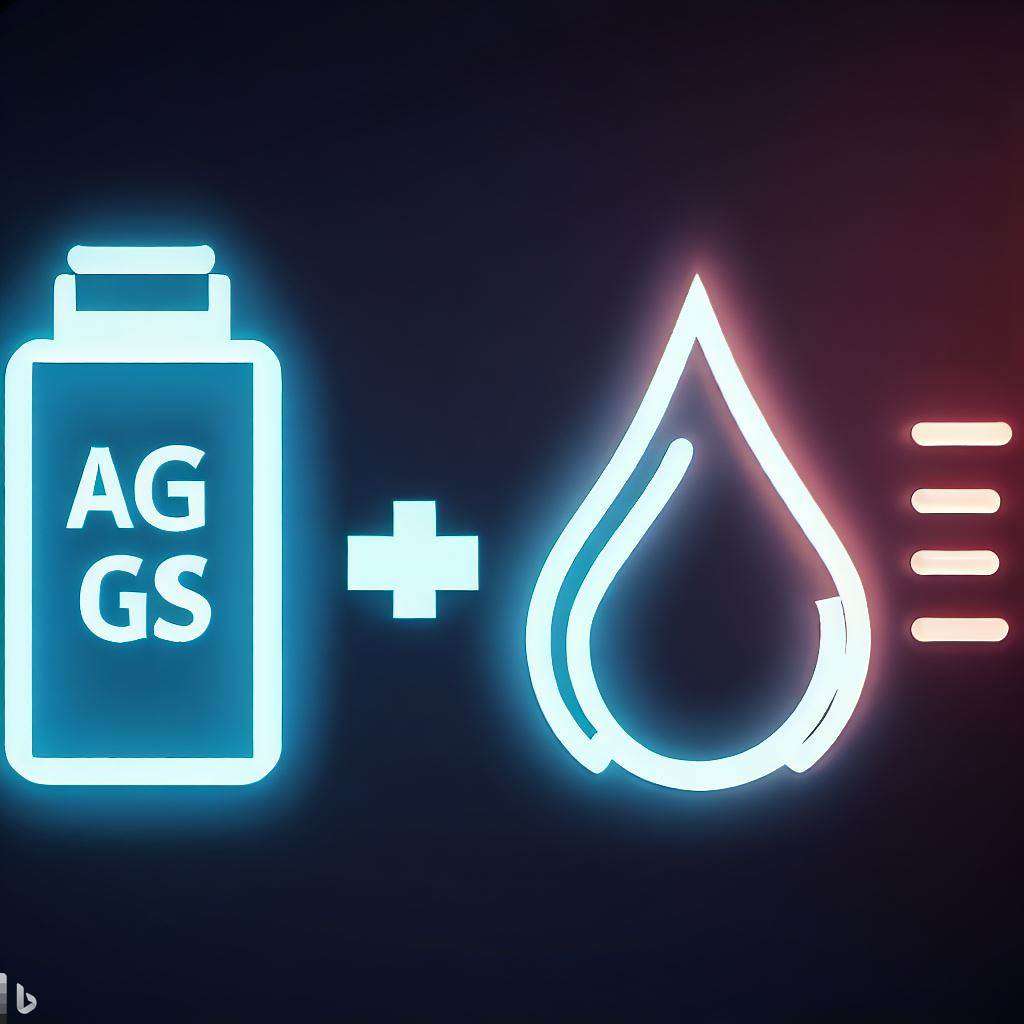Uniswap is a decentralized exchange protocol built on the Ethereum blockchain. Uniswap is a popular decentralized exchange protocol that operates on the Ethereum blockchain.
It allows users to trade cryptocurrencies directly from their wallets without the need for intermediaries. The platform uses smart contracts to facilitate peer-to-peer transactions in a secure and transparent manner. Uniswap’s unique feature is its automated market maker (AMM) model, which eliminates the need for order books and relies on liquidity pools to determine token prices.
Users can easily provide liquidity to these pools and earn fees in return. With its user-friendly interface and decentralized nature, Uniswap has emerged as a go-to platform for decentralized trading and token swaps in the cryptocurrency ecosystem.
The Rise Of Decentralized Finance
Uniswap is a decentralized finance protocol that enables users to trade cryptocurrencies directly from their wallets. It operates on the Ethereum blockchain, allowing for quick and efficient transactions without the need for intermediaries. With its automated market-making system, Uniswap has become a popular platform for decentralized exchanges.
Decentralized Finance, or DeFi, has emerged as one of the most exciting developments in the world of blockchain technology. This innovative and rapidly growing field aims to create a financial system that is open, transparent, and accessible to anyone with an internet connection.
Among the various protocols that power DeFi, Uniswap stands out as a leading decentralized exchange.
What Is Uniswap And Its Role In Defi?
Uniswap is a decentralized exchange protocol built on the Ethereum blockchain. Unlike traditional exchanges that rely on order books, Uniswap utilizes an automated market maker (AMM) model. It allows users to trade directly from their wallets, providing them with a simple and efficient way to swap ERC-20 tokens.
Understanding The Basics Of Decentralized Finance:
- Uniswap enables users to participate in DeFi by providing liquidity to various tokens. This involves depositing tokens into smart contracts, which are then used to facilitate trades on the platform.
- Liquidity providers earn fees based on the trading activity in the pools they contribute to, incentivizing them to add value to the ecosystem.
- Uniswap’s decentralized nature ensures that there is no central authority controlling the exchange, reducing the risk of censorship, fraud, or manipulation.
- The protocol’s open-source code allows developers to build on top of it, leading to a vibrant ecosystem of decentralized applications (dApps) and innovative financial instruments.
Uniswap has become a driving force behind the DeFi movement, empowering individuals to take control of their financial assets and participate in a more inclusive financial system. As decentralized finance continues to gain momentum, the role of Uniswap as a decentralized exchange cannot be overstated.
Its user-friendly interface, secure infrastructure, and constant innovation make it a cornerstone of the DeFi landscape.

Credit: news.bitcoin.com
Uniswap: A Revolution In Token Trading
Uniswap is revolutionizing token trading with its decentralized exchange platform. It offers a seamless and efficient way to trade Ethereum-based tokens, without relying on traditional intermediaries.
Uniswap is a groundbreaking decentralized exchange protocol built on the Ethereum blockchain. It has gained immense popularity since its launch in 2018 due to its unique approach to token trading. Unlike traditional exchanges, Uniswap allows users to trade tokens directly from their digital wallets without the need for intermediaries or order books.
This paradigm shift has transformed the token trading landscape, making it more accessible, efficient, and cost-effective for users worldwide.
How Uniswap Works And Its Key Features:
Uniswap operates on a fully decentralized model, powered by smart contracts. It functions based on the principles of an automated market-making algorithm, which ensures liquidity and fair token pricing at all times. Here are the key features of Uniswap:
- Liquidity pools: Uniswap allows users to pool their tokens into liquidity pools, where they can earn fees for providing liquidity. These pools are vital for the functioning of the platform and ensure that there is always enough liquidity available for trading.
- Automated market-making: Uniswap employs an automated market-making mechanism, eliminating the need for order books. It uses a simple mathematical formula that balances the supply and demand of tokens in the liquidity pools. This algorithm determines the price of tokens based on the ratio of available tokens. As a result, trades can be executed instantly without waiting for counterparties.
- No intermediaries: Uniswap operates without intermediaries, meaning users have full control over their funds and can participate in trading directly from their wallets. This peer-to-peer approach removes the need for trusted third parties, reducing the risk of hacks, and lowering transaction costs.
- Efficient token swaps: Uniswap enables seamless token swapping with minimal slippage. The algorithm ensures that small trades do not significantly impact the price, providing users with fair and efficient trade execution.
- Open and permissionless: Uniswap’s protocol is open-source, allowing developers to build on top of it and create new features or interfaces. It is permissionless, meaning anyone can participate in trading or liquidity provision without having to seek approval from any central authority.
Exploring Uniswap’s automated market-making algorithm:
Uniswap’s automated market-making algorithm lies at the heart of its efficient token trading system. Here’s how it works:
- Constant product formula: Uniswap’s algorithm uses a mathematical formula called the constant product formula. This formula keeps the product of the total token supply in a liquidity pool constant, regardless of the size or number of trades. It ensures that the liquidity of each token remains balanced, which enables smooth and predictable price adjustments.
- Price impact and slippage: When a trade is executed on Uniswap, the algorithm determines the price based on the ratio of tokens in the liquidity pool. However, as the trade size increases, the price may be affected due to slippage. Slippage refers to the difference between the expected and executed price of a trade. To minimize slippage, larger trades are broken down into multiple smaller trades, ensuring smooth price adjustments.
- Swap fees and token incentives: Uniswap charges a small fee for each trade conducted on the platform, which is distributed among liquidity providers. These fees serve as incentives for participants to provide liquidity, contributing to the overall efficiency and functioning of the protocol.
Liquidity pools: A game-changer for decentralized exchanges:
Uniswap’s introduction of liquidity pools has revolutionized the decentralized exchange landscape. Here’s why liquidity pools are a game-changer:
- No need for market makers: Liquidity pools eliminate the need for market makers, as traders can directly trade against the pool. This model democratizes market-making and allows anyone to become a liquidity provider, earning fees for contributing to the liquidity of the platform.
- Adaptive pricing and reduced slippage: Liquidity pools ensure that token prices are determined based on market demand and supply. As liquidity increases in a pool, the price impact decreases, resulting in reduced slippage. This provides a more favorable trading experience for users.
- Expanding the token ecosystem: Liquidity pools facilitate the listing of a wide range of tokens, including those that may not be available on traditional exchanges. This opens up opportunities for smaller projects and increases accessibility to a diverse set of assets.
Uniswap’s decentralized exchange protocol, powered by an automated market-making algorithm and liquidity pools, has redefined token trading. Its innovative features have made token trading more efficient, inclusive, and secure, propelling the growth of decentralized finance (DeFi) and paving the way for the future of financial markets.
The Advantages Of Uniswap
Uniswap offers numerous advantages as a decentralized exchange protocol. It provides instant and permissionless trading, avoiding the need for intermediaries and offering users control over their funds. With its efficient and transparent system, Uniswap facilitates seamless swaps and fosters a more accessible and open financial ecosystem.
Uniswap offers several advantages that make it a popular choice for decentralized trading. Let’s explore these benefits:
- Lower transaction fees and gas costs: Uniswap operates on the Ethereum blockchain, utilizing smart contracts for trading. By eliminating the need for intermediaries, Uniswap significantly reduces transaction fees compared to traditional centralized exchanges. Users can enjoy more cost-effective trading, especially for smaller transactions, without sacrificing security.
- Enhanced security and trustlessness: Uniswap’s decentralized nature ensures that users have full control over their funds throughout the trading process. Trades are executed without the need for a centralized authority, reducing the risk of fraud or manipulation. Additionally, Uniswap utilizes automated market makers (AMMs) and audited smart contracts, ensuring the integrity of trades and enhancing trust in the platform.
- Increased accessibility and inclusivity: Uniswap’s open-source protocol allows anyone with an internet connection and an Ethereum wallet to participate in decentralized trading. This inclusivity opens up opportunities for individuals globally, regardless of their location or financial background. Furthermore, Uniswap facilitates the exchange of any ERC-20 token, promoting liquidity and expanding the range of trading possibilities.
Uniswap’s advantages have contributed to its rapid growth and popularity within the decentralized finance (DeFi) ecosystem. Its cost-efficiency, security, and accessibility make it an appealing option for both experienced traders and newcomers exploring the world of decentralized finance. By harnessing the power of blockchain technology, Uniswap is driving innovation and reshaping the future of trading.
Remember, when considering Uniswap, always evaluate the risks and benefits according to your individual needs and circumstances.
Unleashing The Potential Of Automated Market Making
Uniswap unlocks the power of automated market making, revolutionizing decentralized exchanges. This platform facilitates efficient and secure token trading, utilizing smart contracts and liquidity pools to ensure seamless transactions. Experience the future of decentralized finance with Uniswap.
Decentralized finance (DeFi) has revolutionized the way we interact with traditional financial systems, and one of the standout platforms leading the charge is Uniswap. Uniswap, a decentralized exchange protocol built on the Ethereum blockchain, utilizes the power of automated market making (AMM) to provide liquidity and enable seamless token trading.
Let’s explore the impact of Uniswap on liquidity provision, the benefits and risks associated with being a liquidity provider, and how Uniswap promotes efficiency and price discovery in token trading.
Uniswap’S Impact On Liquidity Provision:
- Uniswap has transformed the landscape of liquidity provision by removing the need for traditional order books and bringing liquidity providers (LPs) directly into the trading process.
- By allowing LPs to deposit an equal value of two tokens in a specific liquidity pool, Uniswap incentivizes the provision of liquidity, ensuring continuous availability for any token pair within its ecosystem.
- This innovative approach has democratized liquidity provision, giving users the opportunity to earn fees by facilitating trades and fueling the DeFi revolution.
The Benefits And Risks Associated With Being A Liquidity Provider:
- Benefits:
- LPs earn a share of the trading fees generated by the liquidity pool, providing a passive income stream in the form of transaction profits.
- Uniswap’s open nature allows anyone to become a liquidity provider, promoting financial inclusivity and enabling individuals to participate in the growth of DeFi.
- LPs have the freedom to withdraw their tokens anytime, allowing for flexibility and control over their invested assets.
- Risks:
- Impermanent loss: Due to the nature of AMM, LPs may experience temporary losses when the relative prices of the tokens in a liquidity pool fluctuate.
- Smart contract risks: As Uniswap operates on the Ethereum blockchain, there is a potential risk of vulnerabilities and security breaches that could impact LPs.
- Market volatility: Liquidity providers are exposed to the volatility of the token market, which can affect the value of their deposited assets.
How Uniswap Promotes Efficiency And Price Discovery In Token Trading:
- Efficiency:
- Uniswap’s AMM model ensures that trades can be executed promptly without the need for order matching, enabling instant token swaps and reducing transaction congestion.
- The absence of intermediaries streamlines the trading process, minimizing costs, and lowering barriers to entry for users.
- Price discovery:
- Uniswap’s constant product market maker formula allows for organic price discovery based on supply and demand dynamics within the liquidity pool.
- By connecting different liquidity pools through interconnected token pairs, Uniswap facilitates efficient price determination for tokens, even those with lower trading volumes.
Uniswap continues to redefine the DeFi landscape, offering decentralized and accessible liquidity provision while promoting efficiency and price discovery in token trading. By embracing the power of automated market making, Uniswap has introduced a transformative approach that empowers users and propels the growth of decentralized finance.
Uniswap Vs. Traditional Exchanges
Uniswap is a decentralized exchange that allows users to trade cryptocurrencies directly from their wallets, without the need for a middleman. With its automated market-making system, Uniswap offers enhanced liquidity and lower trading fees compared to traditional exchanges. Experts consider Uniswap to be at the forefront of the decentralized finance (DeFi) movement.
Uniswap, a decentralized exchange built on the Ethereum blockchain, has quickly gained attention in the cryptocurrency space. As a contrast to traditional exchanges, Uniswap offers a unique trading model that brings both benefits and drawbacks. In this section, we will explore the differences between Uniswap and centralized exchanges, focusing on the key aspects that set them apart.
A Comparison Of Uniswap And Centralized Exchanges
- Sophistication: Centralized exchanges are often more established and provide a wider range of features, such as advanced trading tools and order books. On the other hand, Uniswap offers a simplified approach and a user-friendly interface, making it accessible to beginners.
- Security: Centralized exchanges are prone to hacking and theft risks due to the centralization of user funds. In contrast, Uniswap mitigates these risks by implementing smart contracts and operating in a decentralized manner.
- Liquidity: Traditional exchanges benefit from high liquidity, enabling traders to execute large orders efficiently. However, Uniswap relies on liquidity pools that may suffer from slippage and low liquidity for less popular tokens.
- Control: Centralized exchanges operate under the authority of a central entity, allowing for governmental regulations and intervention. In contrast, Uniswap is governed by a decentralized autonomous organization (DAO), providing users with more control over their assets and removing the need for intermediaries.
- Listing Process: Traditional exchanges have a lengthy and sometimes cumbersome process for listing new tokens. In contrast, Uniswap allows anyone to list a token, as long as it follows the ERC-20 standard, thus promoting inclusivity and innovation.
The Benefits And Drawbacks Of Each Trading Model
Centralized exchanges:
- Benefits:
- Advanced trading features and tools for experienced traders.
- High liquidity for fast execution of trades.
- Insurance and customer support services.
- Drawbacks:
- Reliance on a centralized authority and potential security risks.
- Lengthy and complex token listing process.
- Limited control over your assets.
Uniswap:
- Benefits:
- User-friendly interface and easy accessibility for beginners.
- Enhanced security through decentralized operations.
- Greater control over assets and removal of intermediaries.
- Drawbacks:
- Potentially lower liquidity and higher slippage for less well-known tokens.
- Limited trading features compared to centralized exchanges.
The Potential Implications Of Uniswap’S Growth On Traditional Financial Systems
The rapid growth and adoption of Uniswap pose potential implications for traditional financial systems:
- Disintermediation: Uniswap’s decentralized nature challenges the role of intermediaries in traditional financial systems, potentially reducing their significance.
- Regulatory Considerations: Regulators may need to adapt and establish frameworks to address the decentralized nature of protocols like Uniswap, ensuring the protection of users without stifling innovation.
- Financial Inclusion: Uniswap’s accessibility may lead to increased financial inclusion by allowing users from across the globe to participate in the decentralized finance ecosystem.
While traditional exchanges offer sophistication and high liquidity, Uniswap presents a more accessible and decentralized trading model. As Uniswap continues to grow, it has the potential to disrupt traditional financial systems, promote financial inclusion, and reshape the future of cryptocurrency trading.
The Future Of Uniswap And Decentralized Finance
Uniswap, a decentralized exchange protocol built on the Ethereum blockchain, is revolutionizing the future of finance. It allows users to trade cryptocurrencies directly from their wallets, without the need for intermediaries. With its automated market-making system, Uniswap ensures liquidity and transparency in the decentralized finance ecosystem.
Uniswap’S Role In The Broader Defi Ecosystem
Uniswap has emerged as a game-changing innovation in the world of decentralized finance (DeFi), offering a unique decentralized exchange model that operates on the Ethereum blockchain. As the popularity of DeFi continues to soar, Uniswap stands at the forefront, playing a crucial role in the broader DeFi ecosystem.
Here’s why:
- Liquidity Provider (LP) Participation: Uniswap allows users to become liquidity providers by depositing their digital assets into liquidity pools. This enables seamless and decentralized trading, as users can trade directly from these pools, without the need for intermediaries or centralized exchanges.
- Automated Market Maker (AMM) Mechanism: Uniswap utilizes an automated market maker mechanism, which eliminates the need for order books and brings forth a new era of liquidity provision. This opens up opportunities for anyone to participate in the market-making process.
- Token Listing and Distribution: Uniswap acts as a platform for new token listing and distribution. Unlike traditional exchanges, where listing fees and rigorous processes are common, Uniswap offers a more accessible and inclusive environment for emerging projects to gain exposure and liquidity. This has paved the way for countless innovative projects to enter the market.
- Trustless and Transparent: Uniswap’s smart contract-based architecture ensures that the platform remains trustless and transparent. Transactions are executed on-chain, meaning that they can be verified by anyone, offering a level of security and accountability that traditional financial systems often lack.
- Community Governance: Uniswap’s governance token, UNI, enables community members to actively participate in the decision-making process. Token holders have voting rights on proposals, ensuring that the platform’s governance remains decentralized and community-driven.
Potential Challenges And Areas For Improvement
While Uniswap has undeniably revolutionized the DeFi space, it also faces certain challenges and areas for improvement that should be taken into consideration. These include:
- High Gas Fees: As an application built on the Ethereum blockchain, Uniswap is subject to the network’s scalability limitations and high gas fees. This can make transactions expensive, particularly during periods of high network congestion. Finding solutions to mitigate these issues is imperative for wider adoption and smoother user experience.
- User Education and Adoption: Despite its growing popularity, DeFi is still relatively new and can be complex for newcomers. Uniswap must continue to invest in user education initiatives to lower the barriers to entry and simplify the onboarding process for individuals who are new to decentralized finance.
- Risk and Security: Decentralized exchanges, including Uniswap, are not immune to security vulnerabilities. Auditing smart contracts, implementing rigorous security measures, and fostering a strong security culture within the community are crucial for safeguarding users’ funds and maintaining trust in the platform.
- Regulatory Landscape: As DeFi gains traction, regulatory oversight may become more prevalent. Addressing regulatory concerns and ensuring compliance with applicable laws and regulations will be essential to the long-term success of platforms like Uniswap.
The Outlook For Decentralized Finance And Its Impact On The Traditional Financial Landscape
Decentralized finance represents a seismic shift in the traditional financial landscape, and its impact is set to be far-reaching. Here’s what we can expect:
- Democratization of Finance: DeFi opens up financial services to a global audience, allowing anyone with an internet connection to access and participate in a wide range of financial activities. By eliminating intermediaries, reducing barriers to entry, and offering more inclusive services, DeFi has the potential to empower individuals who were previously excluded from traditional financial systems.
- Financial Innovation and Experimentation: DeFi provides an environment conducive to innovation and experimentation. With decentralized lending, borrowing, trading, and other financial services, DeFi protocols are constantly evolving, offering new opportunities for developers, entrepreneurs, and users to explore and build upon.
- Disintermediation and Reduced Costs: By removing intermediaries from the equation, DeFi reduces costs associated with traditional financial services, such as fees for intermediaries, custody, and settlement. This can lead to greater efficiency, cost savings, and increased accessibility for users worldwide.
- Challenges and Evolution: While DeFi holds great promise, it also faces challenges and hurdles on the path to mainstream adoption. Scalability, regulatory concerns, and user experience will all be key areas for improvement and evolution as the DeFi ecosystem continues to mature.
Uniswap’s role in the broader DeFi ecosystem is pivotal, as it democratizes finance, fosters innovation, and challenges traditional financial systems. With continued improvements, education, and widespread adoption, decentralized finance has the potential to transform the way we interact with money and usher in a new era of financial inclusion and freedom.
Frequently Asked Questions On What Is Uniswap
What Is Uniswap And How Does It Work?
Uniswap is a decentralized exchange that allows users to trade cryptocurrencies directly from their wallets. It works by utilizing smart contracts to facilitate peer-to-peer transactions without the need for intermediaries.
What Do You Use Uniswap For?
Uniswap is used for decentralized trading of cryptocurrencies, providing liquidity and managing transactions.
Why Use Uniswap Instead Of Coinbase?
Uniswap offers quicker and more direct trading on the Ethereum blockchain compared to Coinbase.
How Is Uniswap Different From Coinbase?
Uniswap and Coinbase are different in their approach to trading cryptocurrencies. Uniswap is a decentralized exchange, while Coinbase is a centralized platform.
Conclusion
Uniswap has emerged as a revolutionary decentralized exchange platform built on the Ethereum blockchain. With its unique automated market maker design, Uniswap offers unparalleled liquidity and efficiency for traders and investors. By eliminating the need for intermediaries and centralized order books, Uniswap promotes transparency and security in the world of decentralized finance.
This innovative protocol has gained significant popularity, attracting a diverse range of users who appreciate its simplicity, low fees, and decentralized nature. Uniswap has also played a vital role in the growth of the broader DeFi ecosystem, facilitating the rapid development of new tokens and the ability to easily swap between them.
While Uniswap faces challenges such as scalability and regulatory uncertainties, its potential for disruption and democratization of finance is undeniable. As the crypto landscape continues to evolve, Uniswap remains at the forefront of decentralized exchanges, driving innovation and transforming the way we think about traditional finance.



